When Politics Becomes Our Religion
(Inferno, Canto X): Epicureans, Heretics, Farinata and Cavalcanti.
Now on my right foot, now upon my left
I seek salvation, shifting back and forth.
Torn between vice and virtue’s path,
my heart bewildered frets and wearies me,
like one who of the stars bereft
is lost on every track and faints away.
~ Michelangelo Buonarotti, Complete Poems, 1538
Welcome to Dante Read-Along! 🌒
(If this post appears truncated in your inbox you can read it on the web by clicking here. )
Welcome to Dante Book Club, where you and I descend into Hell and Purgatory to be able to ascend to Paradise. Our guide is the great Roman poet Virgil and in this Tenth Canto we find the Epicureans. You can find the main page of the read-along right here, reading schedule here, the list of characters here (coming soon), and the list of chat threads here.
In each post you can find a brief summary of the canto, philosophical exercises that you can draw from it, themes, character, and symbolism explanations.
All the wonderful illustrations are done specially for the Dante Read-Along by the one and only Luana Montebello.
This Week’s Circle ⭕️
The Sixth Circle of the Heretics - The burning sepulchers - Epicurus and his followers who do not believe in the soul - Farinata and Cavalcanti - The prophecy of Farinata and the politics of Florence - Souls can see the future but are blind to the present.
Canto X: Summary
Dante and Virgil walk with the wall of Dis on one side and the burning sepulchers on the other. They are in the Sixth Circle of the Heretics, which is the first circle in the realm of violence, or sins of the lion. Dante asks if he might see some of those that are within the tombs, as there is no guardian as they have seen in other circles.
Virgil tells him that the lids will be back on “when they return here from Jehosaphat” (X.11). Jehosaphat is the valley outside of Jerusalem in the Old Testament book of Joel, believed to be the setting of the Last Judgment.
I will also gather all nations, and will bring them down into the valley of Jehoshaphat, and will plead with them there for my people and for my heritage Israel, whom they have scattered among the nations, and parted my land. Joel 3:2
The first soul they mention is the Greek philosopher Epicurus and those who followed his ideas, whether literally or more figuratively; it is not just the tomb of Epicurus, but in his examination of this idea, Dante exposes the reach of this specific heresy when he has Virgil say:
Within this region is the cemetery
of Epicurus and his followers,
all those who say the soul dies with the body
X.10-13
Epicurus is not in Limbo with the other noble pagans because of his twofold denial; one of the soul and it’s immortality, the other of the function of humanity as being removed from the expression of Reason through the pursuit of pleasure and avoidance of pain. Dante wrote of this in his Convivio:
There were other philosophers who saw and believed otherwise, and of the group first and foremost was a philosopher known as Epicurus; who, seeing that every animal, as soon as it is born, is directed by nature as it were to its proper end, avoiding pain and seeking happiness, said that this end of ours is pleasure - that is, delight without pain. And since between delight and pain he did not posit any middle ground, he said that “pleasure” was nothing but “lack of pain,” as Tully [Cicero] seems to affirm in the first book of On the Ends of Good and Evil”1
I say that of all the examples of subhuman stupidity the one which is completely foolish, completely base, and completely damaging is when anyone believes that after this life there is no other life. For if we consult all the written works, whether of philosophers or of other sages who were writers, everyone agrees on this: that there is within us some part that is everlasting2
They have an exchange about what Dante has hidden from Virgil (X.19-20), referring back to Dante’s request to see the souls entrapped in the sepulchers; what was hidden was his intention behind asking this question. This then is the longing that Virgil refers to; perhaps “an unspoken wish to see certain distinguished Florentines who had been followers of the school of Epicurus.”3
Someone speaks to Dante, having recognized his voice from it’s accent, beckoning him to stay, frightening Dante with its familiarity. Virgil identifies the voice as Farinata and pushes him forward to talk to him as he rises - in an imitation of the Christ that he rejected - from his sepulcher,4 full of scorn and disdain. Farinata is a Ghibelline - one that Dante had admired despite being in the opposing political faction to his own Guelph party - about whom Dante had asked for information from Ciacco in Inferno VI as one of the worthy Florentines.
As they speak of Florentine politics, the exiles and returns of the two factions, another soul rises up next to Farinata - unnamed in the Canto, but recognized as Cavalcante Cavalcanti - and asks Dante about his own son, why he is not there with Dante.
Dante had been able to figure out that it was Cavalcanti by “his words” and “the nature of his punishment”; that is, with the heretics. Cavalcanti was “a notorious Epicurean.”5
Cavalcanti - a Florentine Guelph, like Dante - questions why Dante should be granted passage into Hell if his own son, of equal - or whom he may consider having higher - intellectual capacity has not been there; but it is not on his own intelligence that Dante has been allowed to journey thus. Cavalcanti’s son is Guido Cavalcanti, a contemporary Florentine poet and friend of Dante.
my own powers have not brought me;
he who awaits me there, leads me through here
perhaps to one your Guido did disdain
X.61-62
One interpretation of the one that “Guido did disdain” could be6 that while Dante’s poetry on Love is honoring the sublime, divine version, virtuous and uplifting, through the figure of Beatrice, that Guido’s was based on an “earthly passion”; therefore Guido would have disdained the high virtuous estate Dante was speaking of.
From these words - did disdain - Cavalcanti thinks that Guido is dead. He fell back into the sepulcher, as though fainting at the news. When Dante wrote the Canto, Guido had already died; but at the timing of the Canto in the spring of 1300, Guido was still alive.
Farinata continues to speak his prophecy to Dante as if Cavalcanti had not interrupted.
And yet the Lady who is ruler here
will not have her face kindled fifty times
before you learn how heavy is that art
X.79-81
The Lady is the moon, and that art is the challenge of trying to return home from exile. Her face kindled 50 times; that is, in 50 months time from hence Dante will be sent into exile. Farinata - and others in Inferno - can peer into the future, but not the present moment:
We see, even as men who are farsighted,
those things,” he said, “that are remote from us;
the Highest Lord allots us that much light.
but when events draw near or are, our minds
are useless; were we not informed by others,
we should know nothing of your human state
X.100-106
Dante tells Farinata to let Cavalcanti know that his son Guido is indeed still living; he had kept quiet about it not knowing if Cavalcanti was aware about the passage of events. He asks who else is there in the circle of Heretics with him; there are over a thousand souls there: Frederick II, who was the Holy Roman Emperor from 1220-1250 and an unnamed Cardinal, who is in fact Ottaviano degli Ubaldini, about whom it was said “he was an Epicurean in word and deed.”7
Virgil could see that Dante was thinking deeply about what had just passed in his conversation with Farinata. Virgil tells him that even when he has been spoken against by others:
When you shall stand before the gentle splendor
of one whose gracious eyes see everything,
then you shall learn - from her - your lifetime’s journey
X.130-133
The “one” is Beatrice, and Dante will learn more about his future and perhaps the meanings and reasons for these events in Paradiso XVII;8 he can rest in the knowledge that all will be revealed in time.
Dante and Virgil continued on into a valley which greeted them with a most terrible stench.
💭 Philosophical Exercises:
To such heights of evil are men driven by religion.
~ Lucretius, On the Nature of Things
On Epicureans
Within this region is the cemetery
of Epicurus and his followers,
all those who say the soul dies with the body.(13-15)
In 1417, the Florentine manuscript hunter Poggio Bracciolini crossed the threshold of a German, likely Benedictine, monastery. What he discovered within would prove pivotal to Renaissance thought and continues to shape philosophy today. Among the texts he unearthed were Cicero’s orations, commentaries on Aristotle, and a long-lost complete treatise on rhetoric by Quintilian.
Bracciolini was astonished also to discover a philosophical poem—De Rerum Natura—by the first-century Roman thinker Lucretius.
Lucretius’ poem eloquently explores the principles of Epicurean philosophy, and I must admit, it is one of the works I would love to explore in a future read-along. It is not only beautifully composed but also profoundly instructive, layered with meaning that invites reflection and discussion.
Dante, however, was unaware of De Rerum Natura, which delves deeply into Epicurean thought. Yet, he knew well that Epicurus denied the existence of the afterlife.
‘It is the mark of an educated mind to be able to entertain a thought without accepting it,’ Aristotle suggests. The Epicureans—those who deny the afterlife—are found in Hell not for rejecting dogma, but for exhibiting intellectual rigidity and dogmatism themselves, for they refused even to entertain the possibility of another truth.9
Heretics and Sense of Time
We have discussed how Dante employs contrapasso—the principle that every sinner’s punishment must correspond fittingly to their sin. This makes this especially intriguing that the punishment of heretics is the loss of perception of the present. Farinata and Cavalcanti can foresee the future and recall the past, yet they remain blind to the events unfolding in the present.
But when events draw near or are, our minds
are useless; were we not informed by others,
we should know nothing of your human state.So you can understand how our awareness
will die completely at the moment when
the portal of the future has been shut.(103-108)
This offers a profound insight into the workings of the psyche—when we focus solely on material concerns, we forfeit the pursuit of a virtuous life. Virtue is not measured in isolated moments, as materialists tended to focus on, but is upheld throughout the entirety of one’s existence. This leads to politics becoming our guide in life...
Politics and Religion
Robert Hollander rightly points out that Dante is not repulsed by Farinata but has a great sense of admiration ‘for his qualities as leader, and for this having stood alone, and successfully, in defence of the city.’10
Despite their differences, what Dante condemns is their ‘wish to achieve their aims without God’ and ‘what destroys their credentials as politicians and as human beings.’
Epicurean politicians focus on their present political success. This success can take virtuous shapes, but just shapes, not as a whole, since true virtue also involves a farsightedness that goes beyond the immediate moment and includes a sense of wholeness.
The absence of a true belief also leads to politics becoming a religion in itself. This brings to mind G.K. Chesterton’s famous phrase that when men stop believing in God, it isn't that they then believe in nothing: they believe in everything.
The German philosopher Hegel suggested that societies become modern when news replaces religion as the central source of guidance and authority.
Reading the morning newspaper is the realist's morning prayer. One orients one's attitude toward the world either by God or by what the world is.
~ Hegel
One of the reasons we believed that leaving religious dogmatism behind would be beneficial was the hope that it would put an end to the schisms that once claimed countless lives. Yet in our modern age, we tear each other apart over a different kind of religion—schisms no longer rooted in theology, but in political allegiances.
This Week’s Sinners and Virtuous 🎭
(Themes, Quotes, Terms and Characters)
Themes 🖼️ :
Farinata: Stoicism and Pride
When I’d drawn closer to his sepulcher,
he glanced at me, and as if in disdain,
he asked of me: “Who were your ancestors?”
Throughout Dante’s conversation with Farinata, we observe pride manifesting in the body language of the damned. His eyebrows rise, his chest is lifted—Farinata embodies the ‘stone man’ so admired by the Stoic philosophers. He is “great-souled’ (magnanimo), a quality of the highest kind in Aristotle’s formulation in the Ethics, but connected, even in classical times, with a fear that such a man may also be prideful.
The absence of guards near the sepulchers
Can those who lie within the sepulchers
be seen? The lids—in fact—have all been lifted;
no guardian is watching over them.
Farinata’s tomb stands unguarded, perhaps alluding to the Gospel of Matthew, where guards were stationed at Christ’s tomb before His resurrection. Farinata, who did not believe in the resurrection of Christ replays it in this scene.
Quotes 🖋️
(The ones I keep in my journal as reminders of eternal wisdom):
But when events draw near or are, our minds
are useless; were we not informed by others,
we should know nothing of your human state.So you can understand how our awareness
will die completely at the moment when
the portal of the future has been shut.
Terms:
- Heretics: “It is necessary to remember what Dante meant by heresy. He meant an obduracy of the mind; a spiritual state which defied, consciously, ‘a power to which trust and obedience are due’; an intellectual obstinacy.”11
Characters:
- Epicurus - (341-270 BC) The Greek philosopher on whose teachings Epicureanism was based.
- Farinata - Farinata degli Uberti, leader of the Ghibelline party in Florentine politics, and of a distinguished family within that party. After the Ghibellines (along with Farinata) were banished from Florence they returned to ambush the Guelf faction at a fight at Montaperti, after which the Guelfs fled. In 1283 he was condemned for heresy.
- Cavalcante Cavalcanti - Florentine, father of Guido Cavalcanti, friend of Dante. Boccaccio says of Cavalcanti “He was…a graceful and wealthy knight. He followed Epicurus in that he did not believe in the life of the soul after the death of the body, and in that he believed our highest good to consist in carnal pleasure. For these beliefs he is damned as a heretic.”12 Cavalcanti and Farinata were in-laws by marriage; thus the irony of their being on opposing sides of the Florentine political struggles.
- Guido Cavalcanti - Florentine poet, Son of Cavalcante Cavalcanti, Guido was also the son-in-law of Farinata, being married to his daughter Beatrice - not Dante’s Beatrice. He was Dante’s great friend, and Dante mentions him in his work La Vita Nuova: “This sonnet was answered by many, who offered a variety of interpretations; among those who answered was the one I call my best friend, who responded with a sonnet beginning: I think that you beheld all worth. This exchange of sonnets marked the beginning of our friendship.”13 He is also referenced again in Purgatorio XI.97. He was of the White Guelph party, but was exiled by that same side; and “it thus came about that Dante was instrumental in sending his own friend into exile.”14
-Frederick II - A king of Sicily who became the Holy Roman Emperor (1220-1250). He was sometimes called Stupor Mundi, or Wonder of the World, for his far reaching talents and intelligence. He was excommunicated by Pope Gregory for actions against Rome, for failing to go on an announced crusade, then excommunicated again for going onto that same crusade, after which he was crowned King of Jerusalem.
Dante, Convivio IV.vi.11-12
Convivio II.viii.8
Dorothy Sayers Hell 132
Reynolds 195
Singleton 153
Mandelbaum 566
Singleton 160
Dante is told “now write this in your mind but do not tell / the world” - and he said things concerning him / incredible even to those who see / them all come true” Paradiso XVII.91-93
This reminds me of a quote by a Polish poet Czeslaw Milowcz, who said that we can trust someone who says they are certain in something for 80 percent, we can still trust if they express certainty for 70 and even 60 percent, but we can never trust someone who says they are certain in something for 100 percent.
Hollanders, Inferno, Notes page 200
Charles Williams, The Figure of Beatrice 125
Singleton 150
Dante, La Vita Nuova, III
Singleton 151

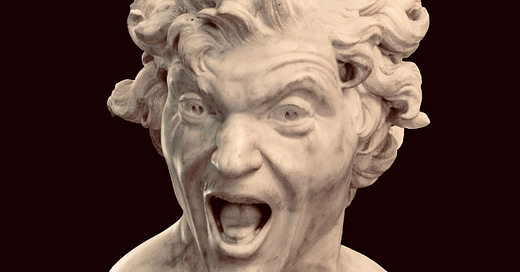



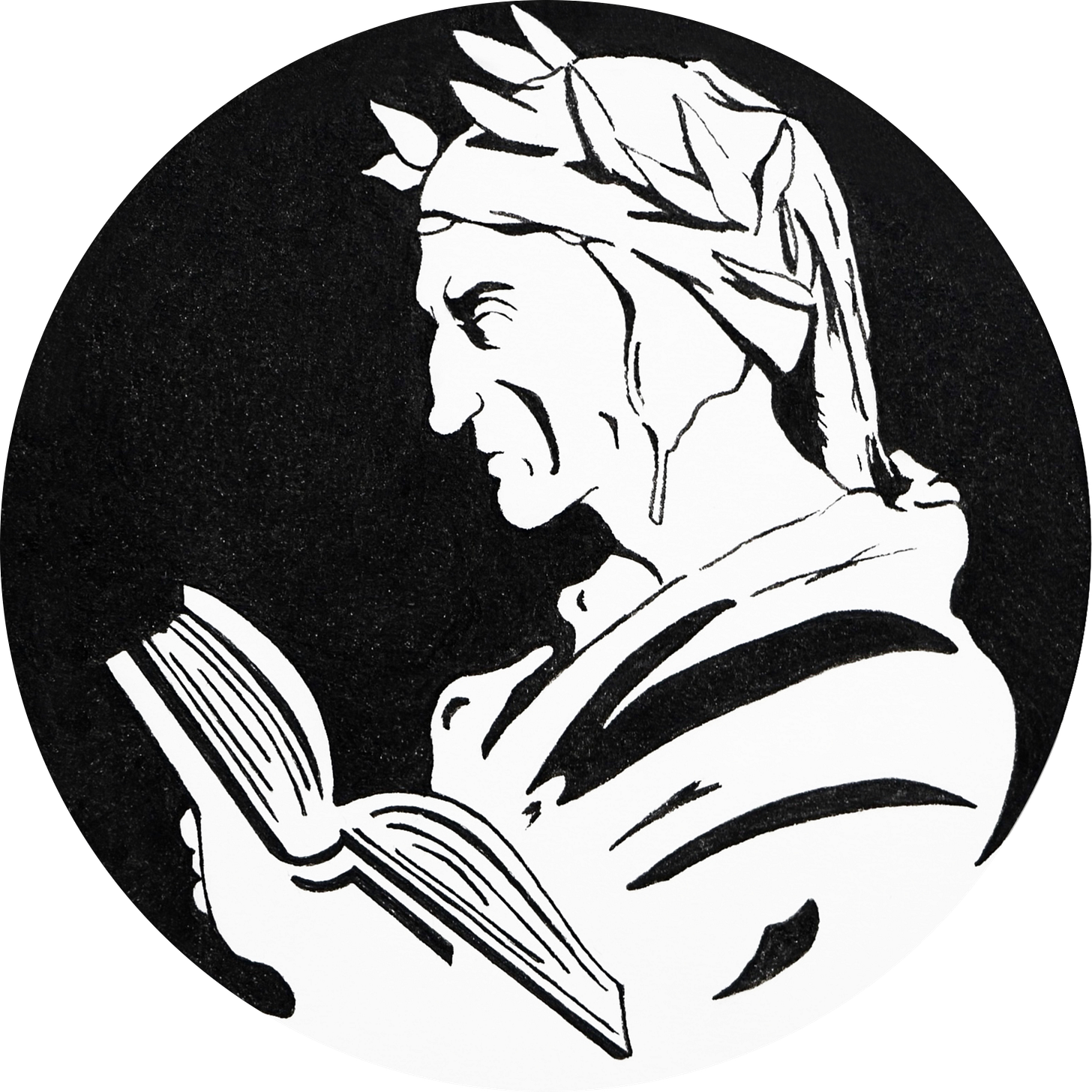

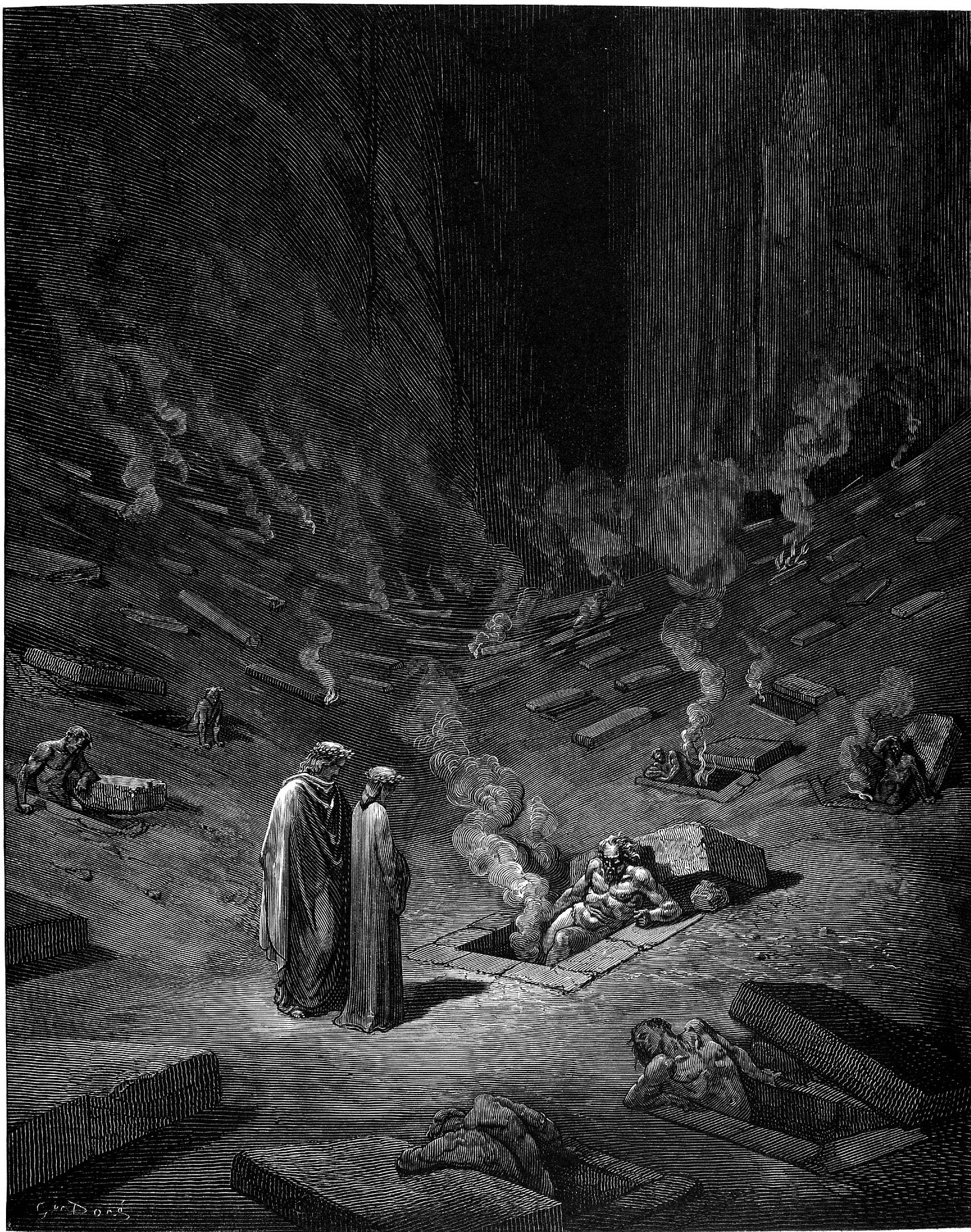
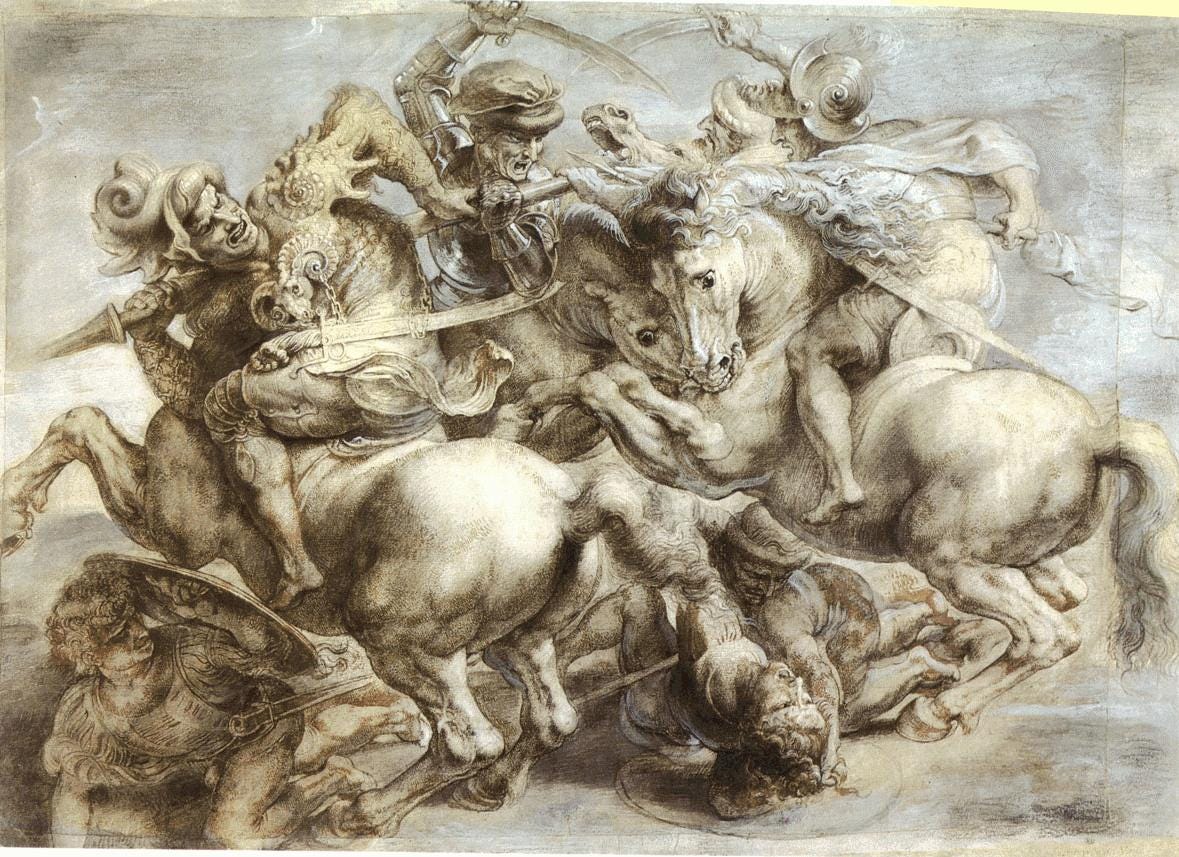


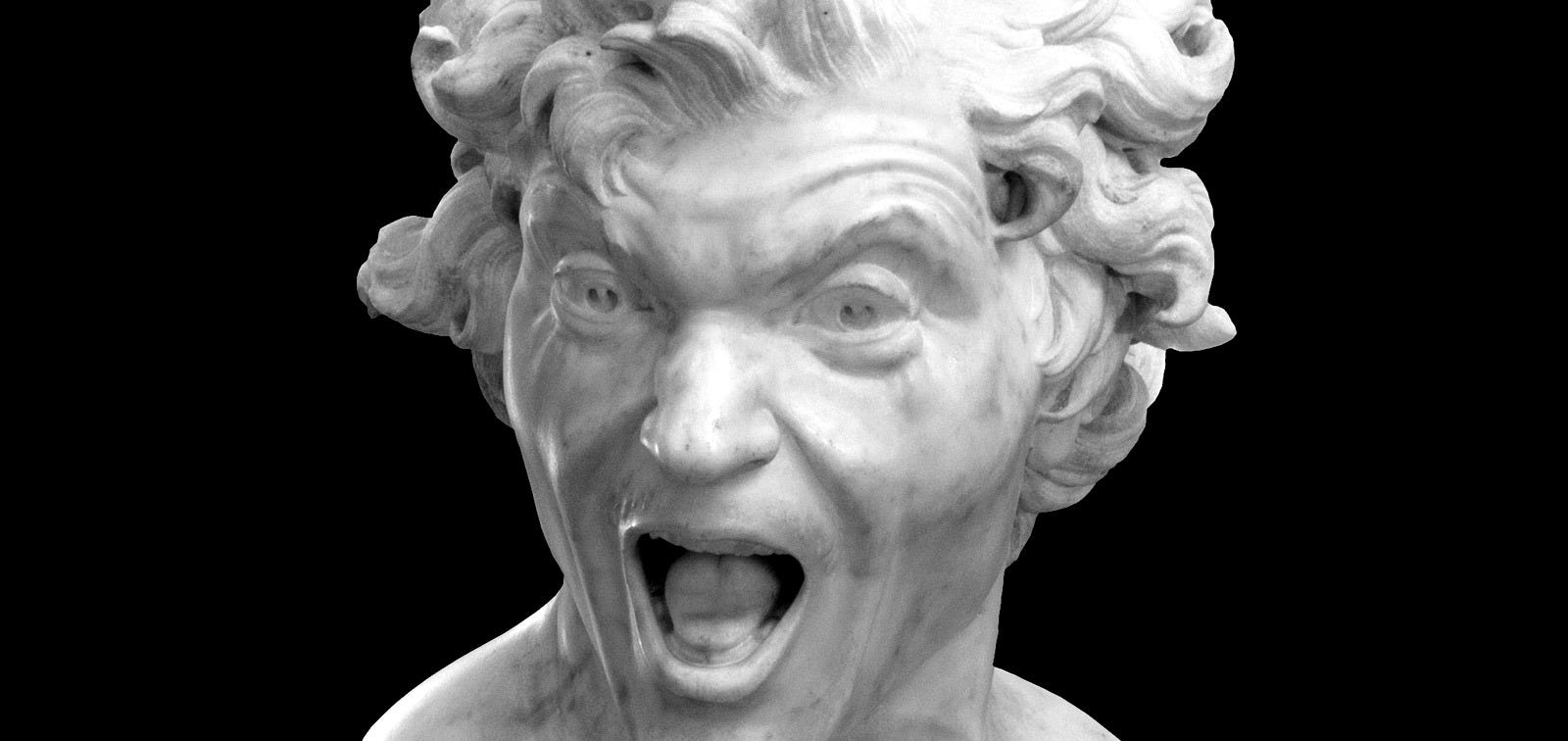
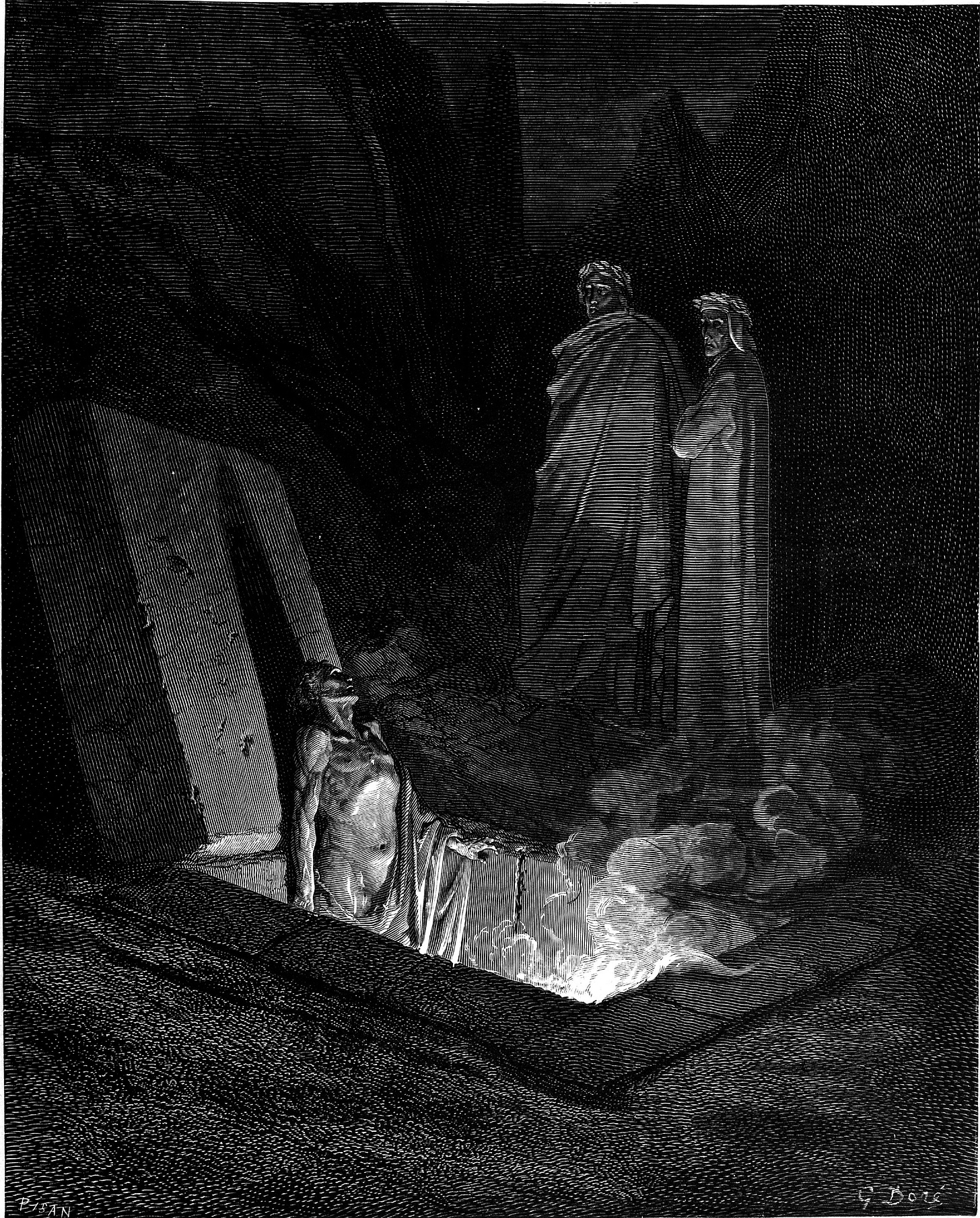

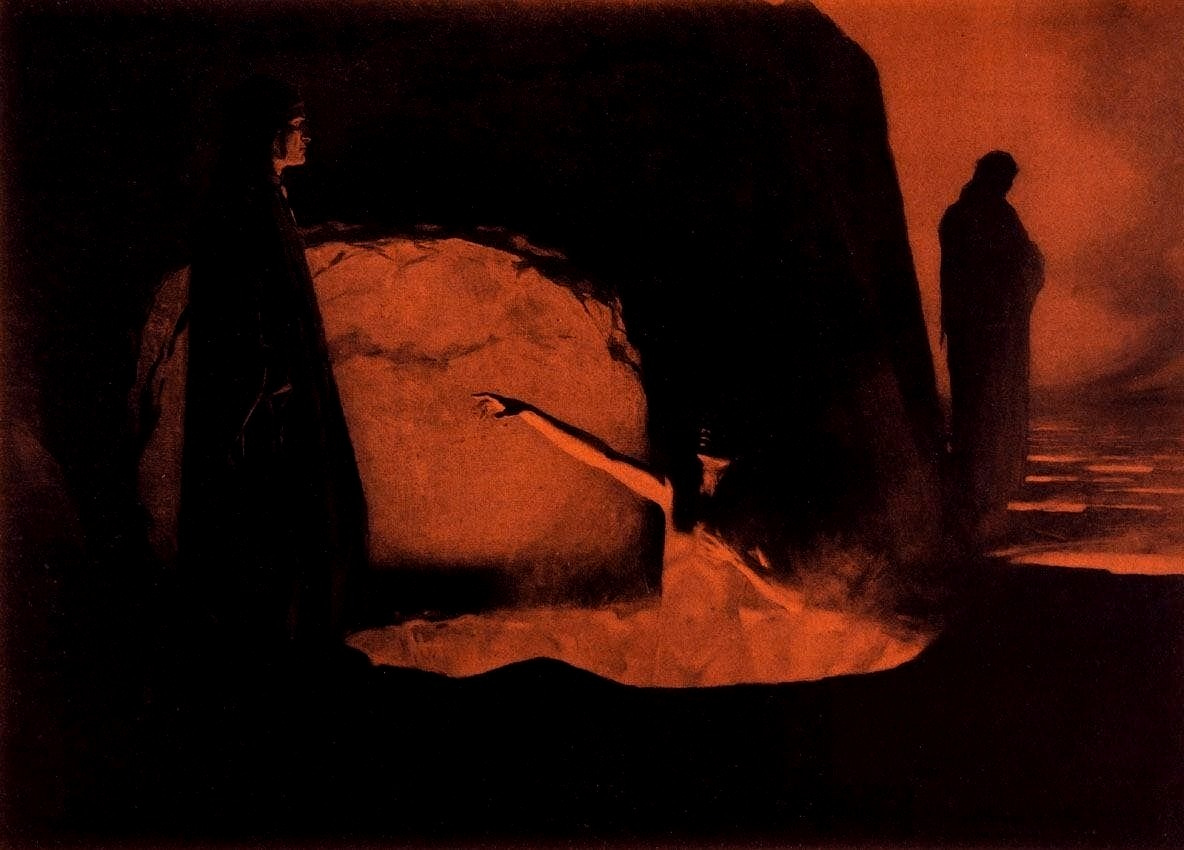

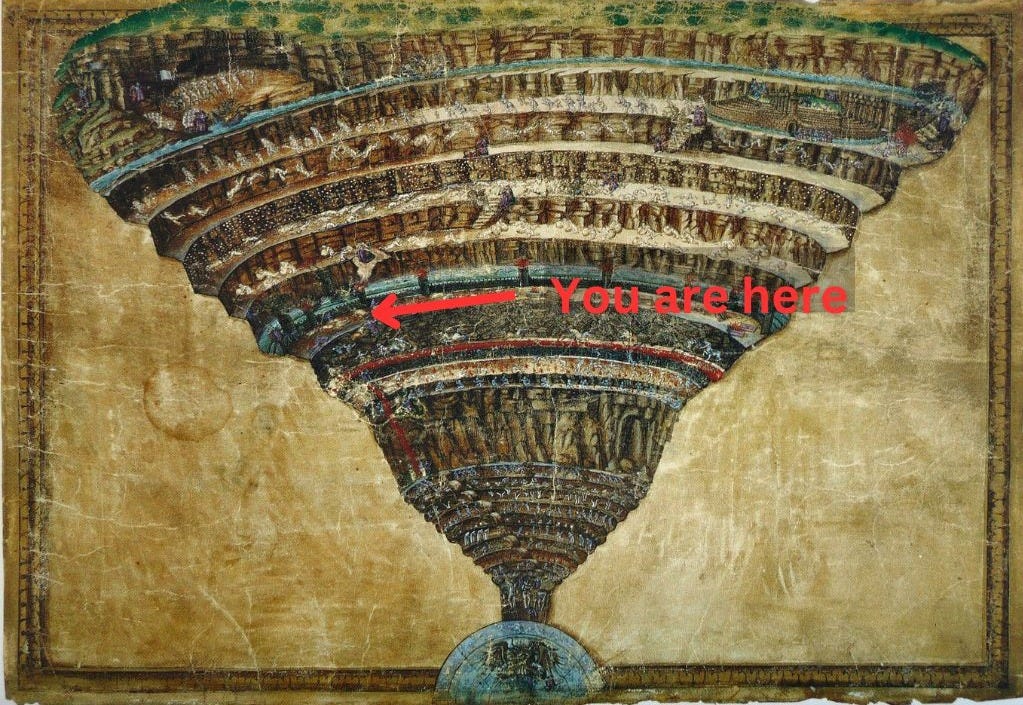


Thank you not only for this thoughtful essay on today’s assignment, but also for the gorgeous passage from Michelangelo’s poems and the stunning da Vinci art work.
Pleasure is fleeting and certainly is not happiness.
A man who believes in nothing will fall for anything.
Hegel - "Reading the morning newspaper is the realist's morning prayer." That's a new one to me. Do we even remember yesterdays 'news'? Very creative that the punishment is loss of the present moment. So fitting.
Thank you!